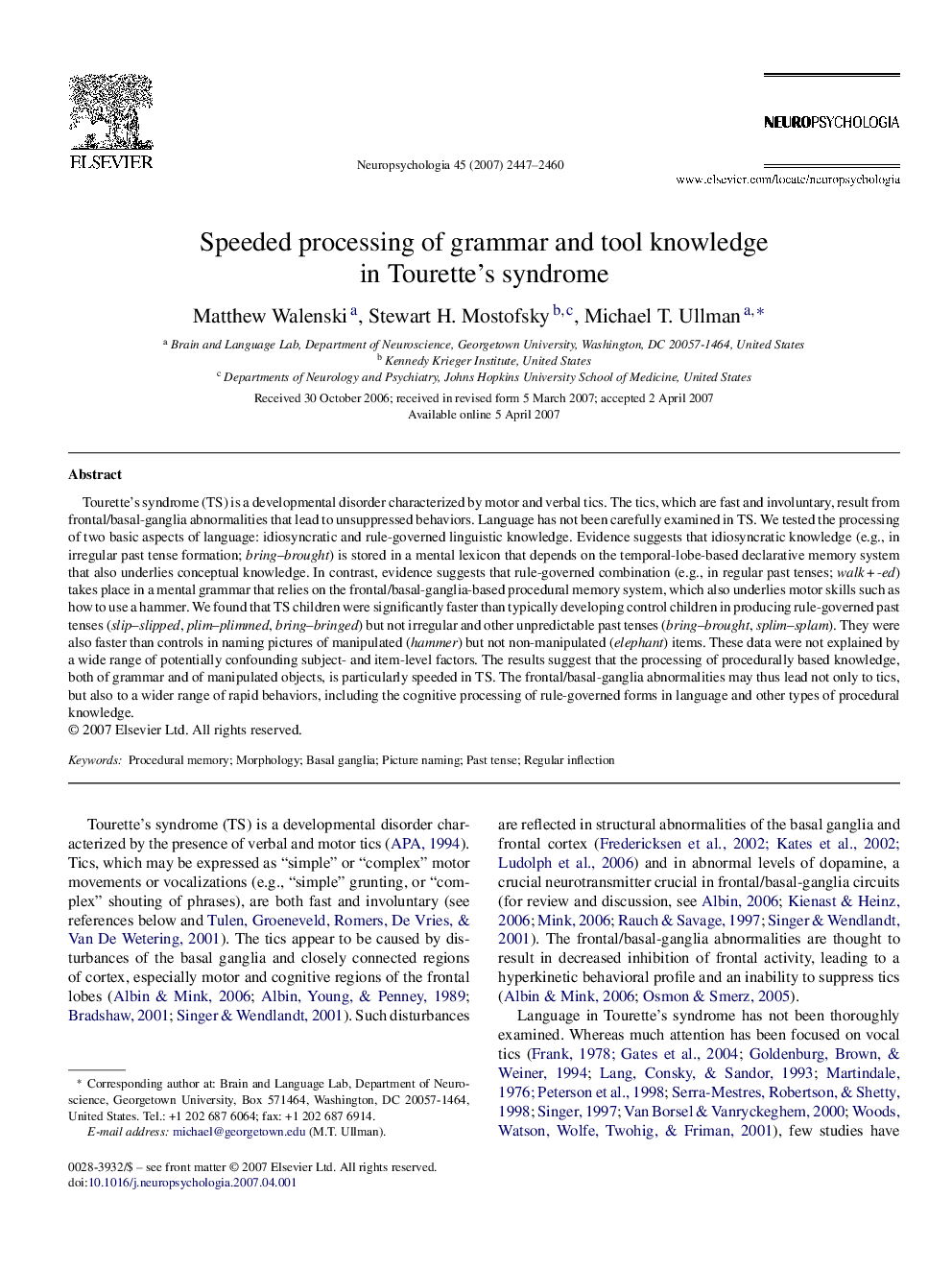| Article ID | Journal | Published Year | Pages | File Type |
|---|---|---|---|---|
| 945531 | Neuropsychologia | 2007 | 14 Pages |
Tourette's syndrome (TS) is a developmental disorder characterized by motor and verbal tics. The tics, which are fast and involuntary, result from frontal/basal-ganglia abnormalities that lead to unsuppressed behaviors. Language has not been carefully examined in TS. We tested the processing of two basic aspects of language: idiosyncratic and rule-governed linguistic knowledge. Evidence suggests that idiosyncratic knowledge (e.g., in irregular past tense formation; bring–brought) is stored in a mental lexicon that depends on the temporal-lobe-based declarative memory system that also underlies conceptual knowledge. In contrast, evidence suggests that rule-governed combination (e.g., in regular past tenses; walk + -ed) takes place in a mental grammar that relies on the frontal/basal-ganglia-based procedural memory system, which also underlies motor skills such as how to use a hammer. We found that TS children were significantly faster than typically developing control children in producing rule-governed past tenses (slip–slipped, plim–plimmed, bring–bringed) but not irregular and other unpredictable past tenses (bring–brought, splim–splam). They were also faster than controls in naming pictures of manipulated (hammer) but not non-manipulated (elephant) items. These data were not explained by a wide range of potentially confounding subject- and item-level factors. The results suggest that the processing of procedurally based knowledge, both of grammar and of manipulated objects, is particularly speeded in TS. The frontal/basal-ganglia abnormalities may thus lead not only to tics, but also to a wider range of rapid behaviors, including the cognitive processing of rule-governed forms in language and other types of procedural knowledge.
